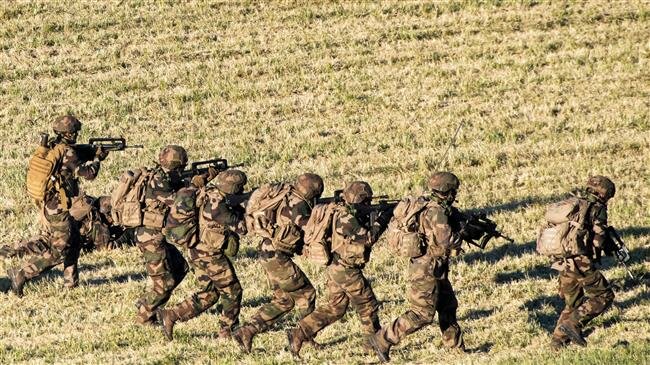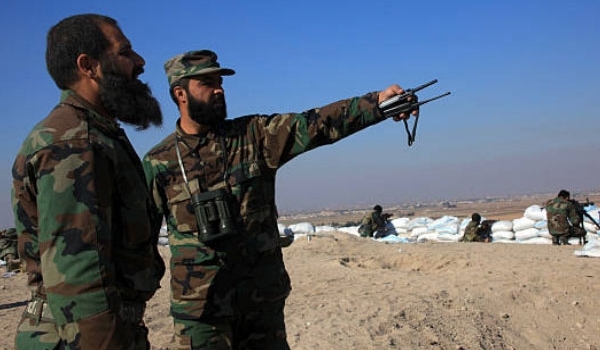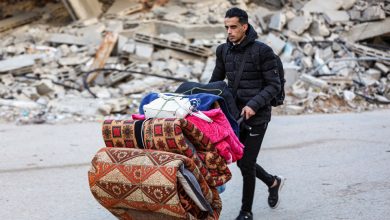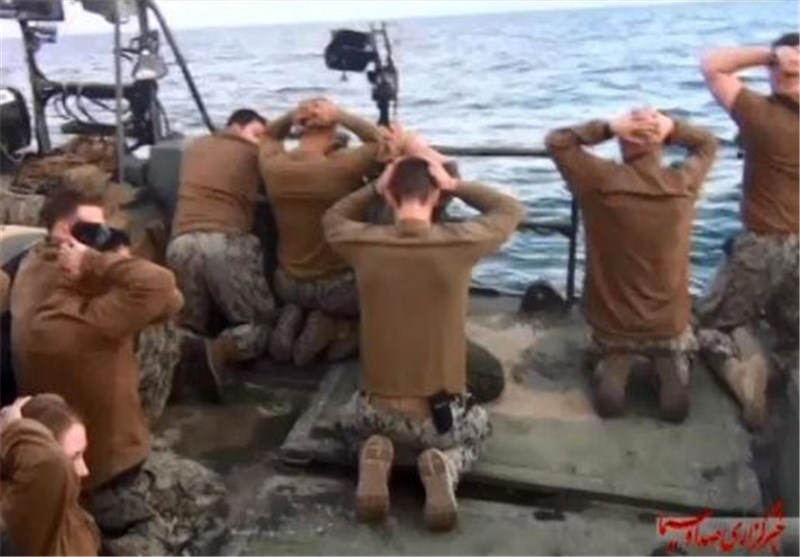UK training Saudi officers as Yemen war rages on: Report


The UK has been training dozens of Saudi Arabian military officers since the beginning of the kingdom’s military aggression against Yemen in March 2015, a new report suggests, further revealing the extent of Britain’s involvement in the deadly conflict.
According to a report published by The Guardian on Wednesday, more than 40 Saudi cadets – including a dozen who came last year – have been training at the Royal Military Academy of Sandhurst, the Royal Air Force (RAF)’s school at Cranwell and the Royal Naval College since 2015.
The majority of the 43 cadets have been training at the Britannia Royal Naval College in Dartmouth.
The UK military confirmed the report after a freedom of information request by the British paper, which was initially rejected by the UK Ministry of Defense (MoD) but later overturned on appeal.
The ministry refused to say how much money London was going to pocket from the Saudi training, arguing that it could harm relations with the Saudis. It also argued that other companies or states competing with the UK to train Saudi cadets could benefit from such information.
Mohammed Ali al-Houthi, the Chairman of the Supreme Revolutionary Committee of Yemen, has condemned London’s role in the war, saying it was not possible for the UK to be a peacebroker in the country and an arms seller at the same time.
Since the beginning of the war, the Saudi air and land forces have launched a campaign of airstrikes as well as a ground offensive against Yemen while the kingdom’s naval forces have maintained a blockade on Yemen.
The UN Committee on the Rights of the Child has warned that the Saudi blockade is exacerbating a a severe lack of food and medicine which has hit children the hardest.
‘Tip of the iceberg’
Labour MP Lloyd Russell-Moyle said London’s training of Saudi officers was only “the tip of the iceberg of British enablement of the Saudi war machine to devastate the people of Yemen”.
“The government argues that helping Saudi prosecute its war crimes is stabilizing the [Persian] Gulf. This is a cynical, morally bankrupt and, most importantly, erroneous position taken to make money out of human suffering,” the lawmaker added.
Priyanka Motaparthy, senior emergencies researcher at Human Rights Watch, said the latest revelation shows that the UK military is working hand in glove with the Saudis.
UK Foreign secretary Jeremy Hunt has claimed that maintaining ongoing military links with Riyadh helps the UK government exert influence over Saudi Arabia and its allies in the war – namely the United Arab Emirates (UAE) and Bahrain — in the war.
“In fact, Human Rights Watch is currently investigating repeated attacks by coalition naval forces on civilians at sea, including fishermen. These incidents follow a ghastly 2017 attack in which refugees trying to flee Yemen by boat were gunned down in a joint helicopter and warship attack. This apparent Saudi-led coalition attack killed 32 people and wounded scores more, including young children,” she added.
UK remains unrepentant
The government of Tory Prime Minister Theresa May has remained unapologetic in the face of growing international outrage over its extensive arms deals and military cooperation with Saudi Arabia.
“Basic initial officer training is conducted by all three services with participants from a multitude of countries, including allies and nations we have existing defense relationships with,” a MoD spokesman told the daily.
“The training enables cadets to learn how to be a leader alongside our service personnel, and assists in understanding and breaking down cultural barriers to improve military-to-military and national relationships.”
According to a Sky News analysis of figures published last month, Britain has sold at least £5.7 billion worth of arms to the Saudi-led coalition since the war started.
The aggression initially consisted of a bombing campaign but was later coupled with a naval blockade and the deployment of ground forces to Yemen. Tens of thousands of Yemenis have so far been killed and thousands more injured.
In November 2018, Save the Children international rights group estimated that 85,000 Yemeni children may have died from extreme hunger or disease caused by the war.
The United Nations Office for the Coordination of Humanitarian Affairs (UNOCHA) has recorded more than 325 Saudi attacks on schools, health facilities, markets, roads, bridges and even water points across Yemen.
Yet in March, as the conflict entered its fifth year, British Foreign Secretary Jeremy Hunt defended London’s weapons sales to Riyadh in an article for Politico.
Hunt has also criticized Germany for banning weapons exports to Saudi Arabia, a move that has caused problems for British arms manufacturers and other European firms who relied on German technology for their products.
Read More:
Earlier this year, it was reported that several British forces secretly partaking in the Yemen war had been wounded in a Yemeni drone attack. London has denied the report since without providing further details.
The British military has also been training Saudi pilots to operate UK-made Eurofighter Typhoon jets, which Saudi Arabia has been using to attack Yemeni people.






